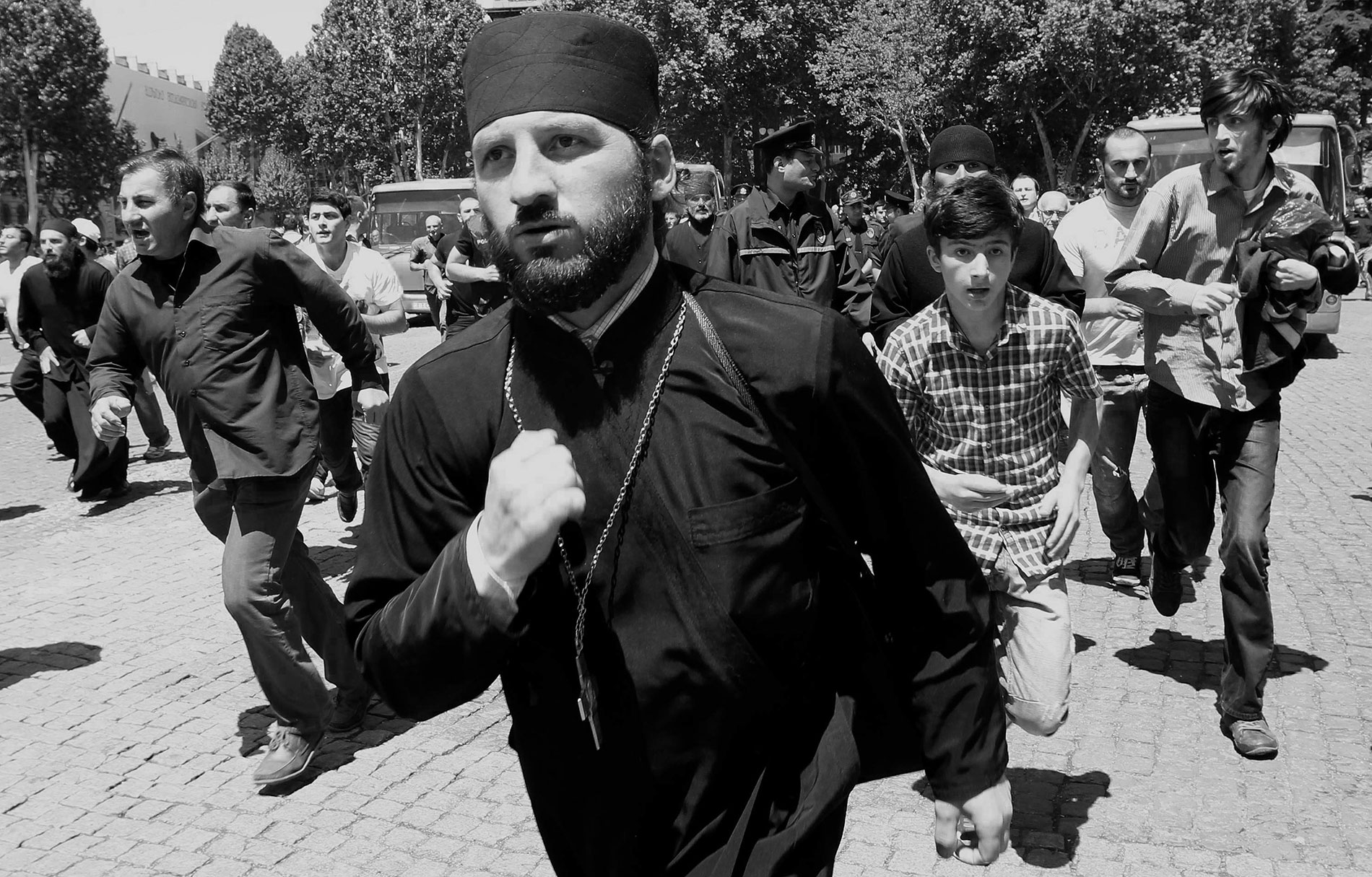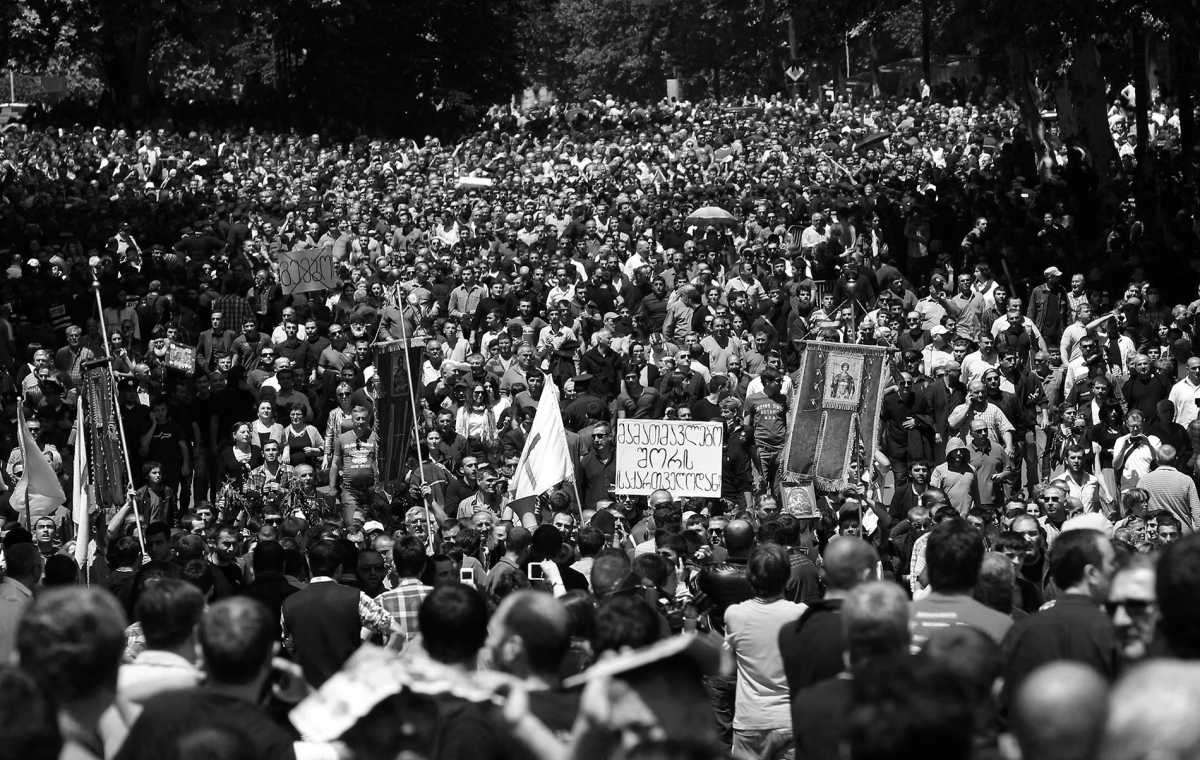
Thousands of Orthodox Christian anti-gay activists managed to break through a police cordon and pursue gay rights advocates in the capital of Georgia, Tbilisi. At least 28 people were injured in the violent brawl, which took place on May 17, the International Day Against Homophobia.
Georgia's first officially sanctioned rally against homophobia, organized by activists from Identity NGO, had to be moved to the public garden in Tbilisi's Freedom Square when more than 10,000 Orthodox anti-gay activists showed up at the Friday rally's initially planned location.
Heavy police cordons still failed to keep the furious anti-gay activists in check. Led by Orthodox priests, the anti-gay activists rushed to the new parade location. After breaking into the garden, the agitated anti-gay crowd violently pursued the gay rights activists, beating them and throwing stones at anyone they thought to be advocating for gay rights.

Orthodox Christian activists - Tbilisi, May 17, 2013. (Reuters)
At least 28 different people suffered injuries from the clashes, and 14 had to be hospitalized, according to David Sergeenko, Georgia's Minister of Health. The attacked parade had been officially allowed by Tbilisi city authorities, in spite of calls by the Georgian Orthodox Church to ban it. Head of the Orthodox Church, Georgian Patriarch Ilya II, said on Thursday that homosexuality was "an anomaly and illness" and the parade would represent "an insult" to Georgian traditions.
Father Ioanne, an Orthodox priest, claimed the Georgian people didn't want to see "propaganda from minorities." The desire for "these people" to demonstrate, in his view, was a problem.
Other priests leading the rally said they refused to allow "rampant immorality."
After the violence in Tbilisi, the Georgian parliament expressed support for minorities' rights. Georgian Parliament Chairman David Usupashvili underlined the Georgian constitution's support for freedom of views and faith, noting that nobody has a right to go beyond it.
A parliamentary majority leader, Georgy Gabashvili, put the blame on the authorities, claiming the government had not done enough to protect sexual minorities' rights. The parliamentary minority, led by President of Georgia Mikhail Saakashvili, also spoke out in support of the march against homophobia, according to news agency Interfax.
Speaking before the march, Georgian Prime Minister Bidzina Ivanishvili pointed out that LGBTI rights are human rights, and underscoring Georgia's long history of tolerating minority groups. He stated his government would implement the Georgian people's will and maintain their commitment to European values, including democracy, equality, and the rule of law.
